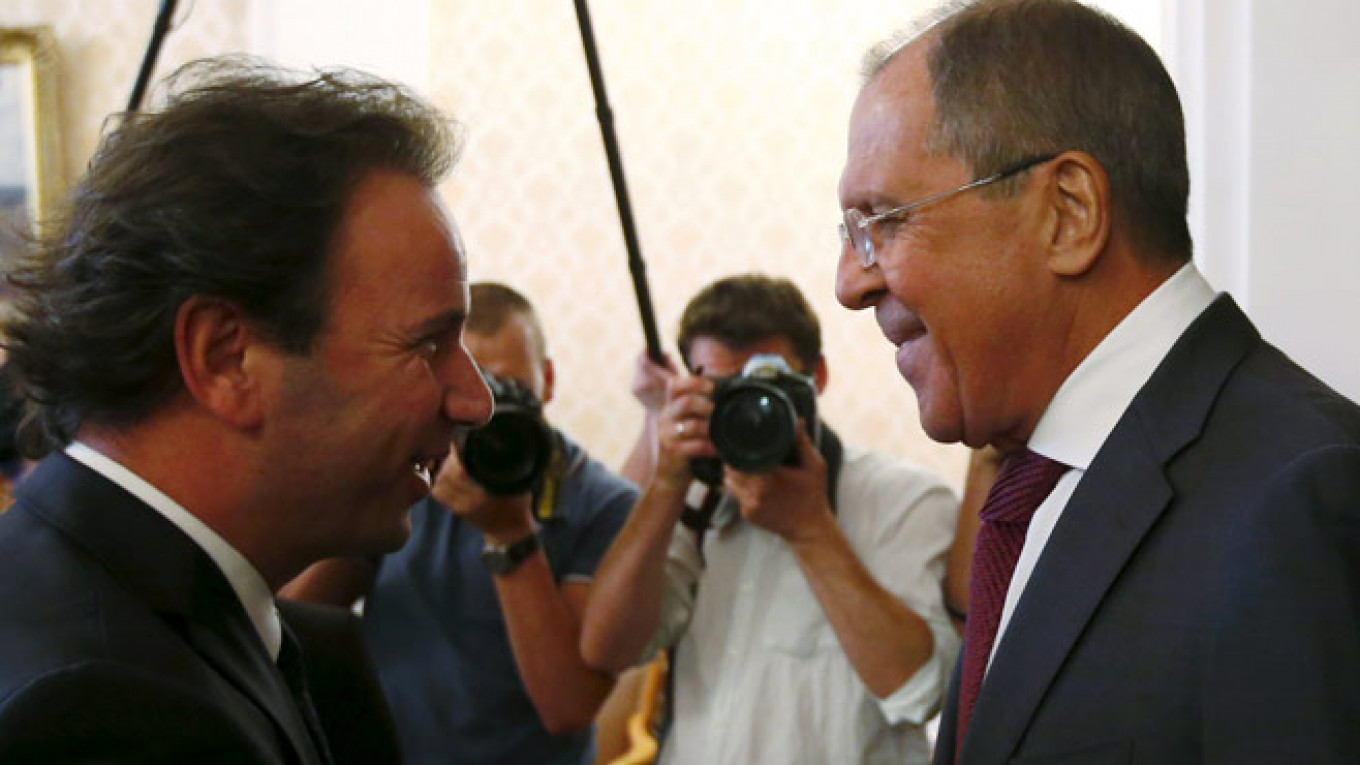Russia's foreign minister on Thursday hosted a delegation of the main Syrian opposition group, part of the Kremlin's new push for a mediation role in the Syrian conflict.
Sergei Lavrov told the leaders of the Syrian National Coalition that Moscow was willing to "help all Syrians unite over the core task of preserving their country, ensuring stability and preventing it from becoming a hotbed of terrorism and other threats."
President Vladimir Putin launched Russia's new mediation effort in June when he met with Saudi Deputy Crown Prince and Defense Minister Mohammed bin Salman in St. Petersburg. Lavrov has said that the Russian plan proposes that all forces opposing Islamic State extremists — including the Syrian opposition, the Syrian army, the Iraqi army and the Kurds — pool their efforts.
Moscow has been a key backer of Syria's President Bashar Assad, shielding it from the United Nations sanctions and continuing to provide it with weapons throughout a civil war that has dragged on for more than four years, leaving at least 250,000 dead and turning more than 4 million people into refugees.
Earlier this week, Lavrov met with his Saudi counterpart for Syria-focused talks that highlighted continuing sharp differences about Assad's fate. While Lavrov called for including the Syrian government troops in a coalition fighting IS, Saudi Foreign Minister Adel al-Jubeir rejected any role for Assad.
Earlier this year, Moscow hosted some members of the Syrian opposition for consultations, but the National Coalition has until now refused to visit Russia.
Speaking before Thursday's talks with Lavrov, coalition president Khaled Khoja told the Interfax news agency that Assad shouldn't be part of any future transitional government.
A Message from The Moscow Times:
Dear readers,
We are facing unprecedented challenges. Russia's Prosecutor General's Office has designated The Moscow Times as an "undesirable" organization, criminalizing our work and putting our staff at risk of prosecution. This follows our earlier unjust labeling as a "foreign agent."
These actions are direct attempts to silence independent journalism in Russia. The authorities claim our work "discredits the decisions of the Russian leadership." We see things differently: we strive to provide accurate, unbiased reporting on Russia.
We, the journalists of The Moscow Times, refuse to be silenced. But to continue our work, we need your help.
Your support, no matter how small, makes a world of difference. If you can, please support us monthly starting from just $2. It's quick to set up, and every contribution makes a significant impact.
By supporting The Moscow Times, you're defending open, independent journalism in the face of repression. Thank you for standing with us.
Remind me later.






